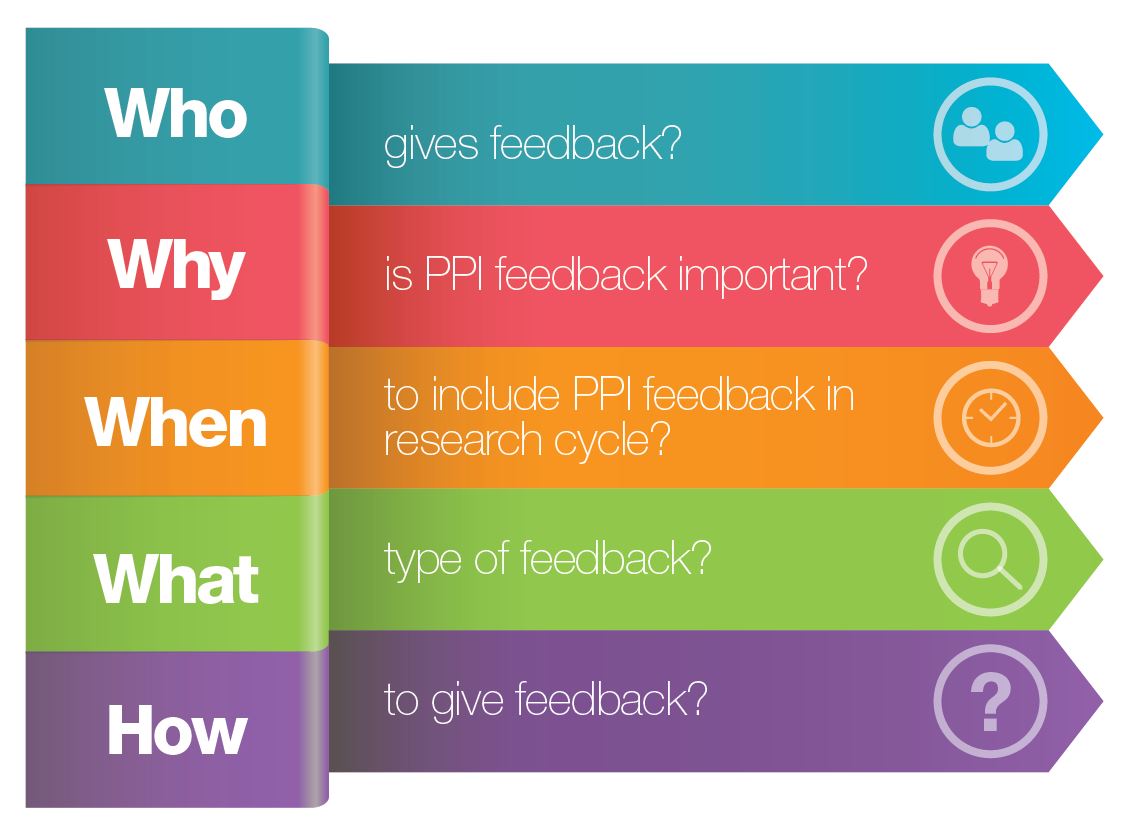Elspeth Mathie discusses her recent study on the importance of giving feedback to the public in PPI.

Are members of the public wasting their time?
It is widely accepted that Patient and Public Involvement is beneficial for health research. However, imagine spending time giving your opinion and never getting any feedback. Some members of the public ask “am I wasting my time”? Many PPI contributors (lay members, service users, patients, members of the public) say that they contribute to the design of research studies but do not hear if their comments get to the researcher, are useful or make any difference to the research. The idea for our research study came from PPI contributors and PPI leads in the East of England and was funded by the Collaboration for Leadership in Applied Health Research and Care (CLAHRC EoE). We designed a study to examine the variation, types, importance of, and satisfaction with feedback given by researchers to PPI contributors. We carried out an online survey amongst six PPI groups in the East of England, interviews and an audit.
What sort of feedback do you suggest they give?
The study found there were various expectations of feedback. Firstly, it’s important to acknowledge receipt of comments, for some PPI contributors they just wanted “a thank you”. Secondly, people want to know if the study was successful (funded, ethical approval) and what were the study results and outcomes. Lastly, PPI contributors want to know if their comments had any impact on the research. Feedback can be facilitated by those who lead PPI groups.
What did you find in your study?
Feedback is very variable and not routine. Nearly one in five (19%) of PPI contributors said they never receive feedback on their contributions but felt it was important to receive it. Feedback needs to be tailored to different activities, for example commenting on patient information leaflets requires different feedback to being on a research team. Feedback is important to motivate further involvement in research, helps improve involvement in the future through learning and self-development and can build confidence. Feedback also helps researchers to reflect on the impact of PPI. Our co-authored paper provides more information.
Why are some researchers not giving feedback?
Some researchers did not know that feedback was expected or wanted, therefore an honest discussion about expectations is needed at the beginning of a project. Researchers are often on short-term contracts and projects may not allow sufficient time or money for PPI and feedback. Researchers may also lack the skills to give sensitive feedback, especially when comments are not used.
How can researchers improve their feedback?
The PPI contributors, PPI leads and researchers on the project have co-produced guidance which contains the who, why, how, when, what and how of PPI feedback which we hope will help. On pages 12-13 some examples of actual feedback are provided.
And tell us about your experience of presenting at the Imperial and Partners PPI in Research Group?
I was pleased to be asked to present our research findings to the Imperial and Partners PPI in Research Group on 20th April and wondered if this lack of feedback resonated with the PPI champions at the meeting. One experienced PPI contributor said that he had been pleased with the feedback he had received but said he had asked for feedback himself. His experience had been a good one. We discussed how to address giving different feedback to different people and as researchers sharing our frustrations with PPI contributors when we can’t amend Participant Information Leaflets due to certain requirements. We discussed the need to give feedback after ‘one off events’, and the general consensus is that members of the public who contribute should have the opportunity to know that their voice has made a difference.
Elspeth Mathie is Senior Research Fellow and CLAHRC EoE co-lead PPI in Research Theme at the University of Hertfordshire. If you would like to learn more from Elspeth you can follow her on Twitter at @elspeth_mathie or email her at E.J.Mathie@herts.ac.uk
Further resources
Impact of Patient and Public Involvement (PPI): Completing the Feedback Cycle
Guidance for researchers: feedback
Reciprocal relationships and the importance of feedback in patient and public involvement: A mixed methods study Mathie E, Wythe H, Munday D, et al. Reciprocal relationships and the importance of feedback in patient and public involvement: A mixed methods study. Health Expect. 2018;00:1–10.

Hi my loved one! I wish to say that this article is amazing,
great written and include almost all important infos.
I would like to peer extra posts like this.